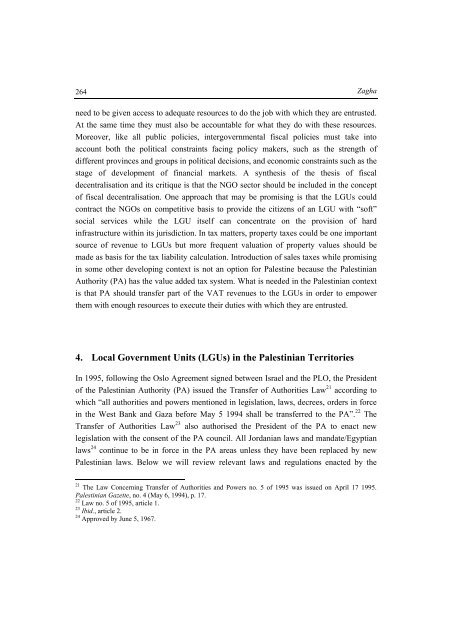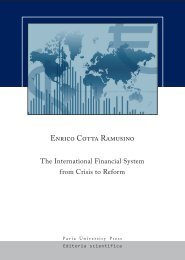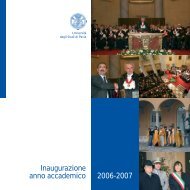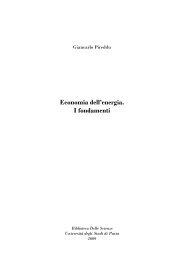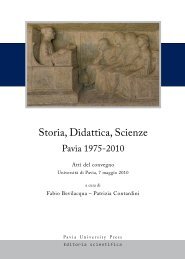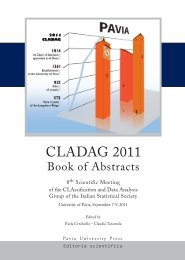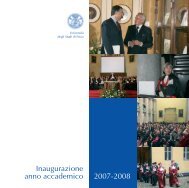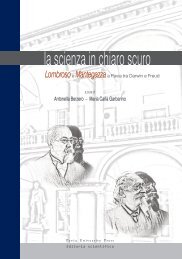The Palestinian Economy. Theoretical and Practical Challenges
The Palestinian Economy. Theoretical and Practical Challenges
The Palestinian Economy. Theoretical and Practical Challenges
You also want an ePaper? Increase the reach of your titles
YUMPU automatically turns print PDFs into web optimized ePapers that Google loves.
264<br />
Zagha<br />
need to be given access to adequate resources to do the job with which they are entrusted.<br />
At the same time they must also be accountable for what they do with these resources.<br />
Moreover, like all public policies, intergovernmental fiscal policies must take into<br />
account both the political constraints facing policy makers, such as the strength of<br />
different provinces <strong>and</strong> groups in political decisions, <strong>and</strong> economic constraints such as the<br />
stage of development of financial markets. A synthesis of the thesis of fiscal<br />
decentralisation <strong>and</strong> its critique is that the NGO sector should be included in the concept<br />
of fiscal decentralisation. One approach that may be promising is that the LGUs could<br />
contract the NGOs on competitive basis to provide the citizens of an LGU with “soft”<br />
social services while the LGU itself can concentrate on the provision of hard<br />
infrastructure within its jurisdiction. In tax matters, property taxes could be one important<br />
source of revenue to LGUs but more frequent valuation of property values should be<br />
made as basis for the tax liability calculation. Introduction of sales taxes while promising<br />
in some other developing context is not an option for Palestine because the <strong>Palestinian</strong><br />
Authority (PA) has the value added tax system. What is needed in the <strong>Palestinian</strong> context<br />
is that PA should transfer part of the VAT revenues to the LGUs in order to empower<br />
them with enough resources to execute their duties with which they are entrusted.<br />
4. Local Government Units (LGUs) in the <strong>Palestinian</strong> Territories<br />
In 1995, following the Oslo Agreement signed between Israel <strong>and</strong> the PLO, the President<br />
of the <strong>Palestinian</strong> Authority (PA) issued the Transfer of Authorities Law 21 according to<br />
which “all authorities <strong>and</strong> powers mentioned in legislation, laws, decrees, orders in force<br />
in the West Bank <strong>and</strong> Gaza before May 5 1994 shall be transferred to the PA”. 22 <strong>The</strong><br />
Transfer of Authorities Law 23 also authorised the President of the PA to enact new<br />
legislation with the consent of the PA council. All Jordanian laws <strong>and</strong> m<strong>and</strong>ate/Egyptian<br />
laws 24 continue to be in force in the PA areas unless they have been replaced by new<br />
<strong>Palestinian</strong> laws. Below we will review relevant laws <strong>and</strong> regulations enacted by the<br />
21 <strong>The</strong> Law Concerning Transfer of Authorities <strong>and</strong> Powers no. 5 of 1995 was issued on April 17 1995.<br />
<strong>Palestinian</strong> Gazette, no. 4 (May 6, 1994), p. 17.<br />
22 Law no. 5 of 1995, article 1.<br />
23 Ibid., article 2.<br />
24 Approved by June 5, 1967.


